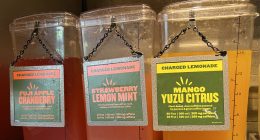From Covid conspiracies to lies about the Ukraine war … traditional fact-checking is no match for the power of the crowd
In recent years, the internet has become the venue for a general collapse in trust. Trolling, fake news and “doing your own research” have become such a part of public discourse, it’s sometimes easy to imagine that all the online revolution has brought us is a myriad of new ways to be confused about the world.
Social media has played a particularly significant role in the spread of disinformation. Malicious state enterprises such as the notorious Russian “troll farm” are part of this, certainly. But there is a more powerful mechanism: the way it brings together people, whether flat earthers or anti-vaxxers, who would find it difficult to meet like-minded folks in the real world. Today, if you’re convinced our planet isn’t round, you don’t have to resort to standing on street corners with a sign, shouting at passersby. Instead you have access to an online community of tens of thousands of individuals producing content that not only tells you you’re right, but also builds a web of pseudo-knowledge you can draw from any time you feel your beliefs are being challenged.




